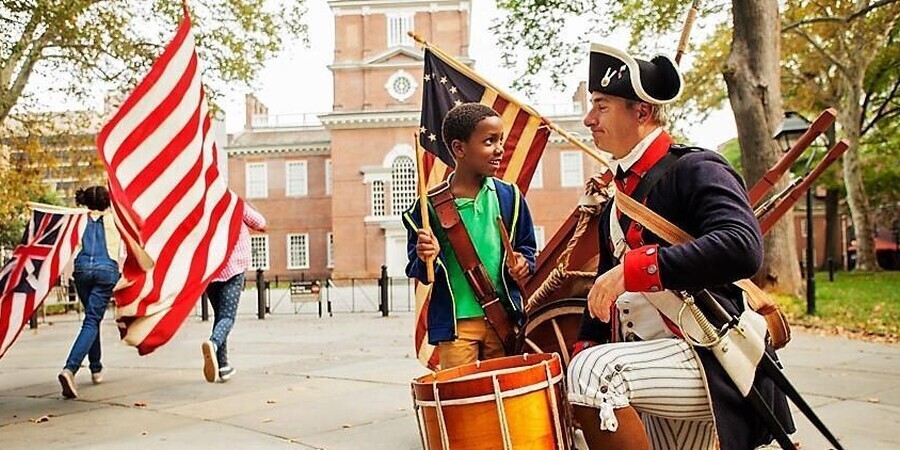Philadelphia Historical Timeline
- Philadelphia: A Cradle of Revolutionary Fervor in 1776. 1776 Philadelphia emerged as the epicenter of revolutionary fervor, with meaningful events shaping American history.
Philadelphia: A Cradle of Revolutionary Fervor in 1776
In 1776, Philadelphia emerged as the epicenter of revolutionary fervor, with meaningful events shaping American history.
Common Sense Ignites a Nation:
In January, Thomas Paine's influential pamphlet "Common Sense," printed by Robert Bell in Philadelphia, sparked a national conversation about independence. Paine's powerful arguments resonated with colonists, fueling the growing desire for self-governance.
A Symbol of Unity:
Amidst this political turmoil, Betsy Ross, a widowed upholsterer, received a commission of historical significance: to design and create the first American flag. Although the details remain shrouded in legend, it is widely believed that Ross, with input from George Washington and others, crafted the iconic stars and stripes that would become a symbol of the developing nation.
The Second Continental Congress Convenes:
The Second Continental Congress reconvened in Philadelphia's State House in May as tensions escalated. The atmosphere was electric, with passionate debates raging over the issue of independence. While some delegates advocated for reconciliation with Britain, the public opinion shifted towards a decisive break.
A Declaration of Independence:
On June 7, Richard Henry Lee presented a resolution declaring that the colonies should be free and independent states. A committee, including Benjamin Franklin and Thomas Jefferson, was formed to draft a formal declaration. Jefferson, working diligently in his rented rooms at 7th and Market Streets (now the Declaration House), penned the eloquent document that would forever change the course of history.
A Momentous Vote:
After heated debates, the Continental Congress voted in favor of independence on July 2. Notably, two Pennsylvania delegates, John Dickinson and Robert Morris, initially opposed the resolution but were absent during the final vote. This allowed the remaining Pennsylvania delegation to swing the vote in favor of independence, aligning with the majority of colonies.
The Birth of a Nation:
On July 4, the Continental Congress officially adopted the Declaration of Independence, a bold proclamation asserting the colonies' right to self-governance and listing their grievances against the British Crown. The document, signed by most delegates on August 2, marked the birth of a new nation.
Revolutionary Spirit Sweeps Philadelphia:
The spirit of revolution permeated Philadelphia. Reverend Jacob Duche, the rector of Christ Church, replaced prayers for King George III with prayers for the Continental Congress, symbolizing a definitive break from British rule. Thomas Paine continued to inspire the cause with his "American Crisis" pamphlets, while Benjamin Franklin embarked on a diplomatic mission to France to secure support for the American Revolution.
Washington's Bold Move:
On Christmas night, George Washington and his troops successfully crossed the Delaware River, culminating in a surprise victory at the Battle of Trenton. This morale-boosting triumph proved a turning point in the war, demonstrating the resolve and determination of the American forces.
1776 was a pivotal year for Philadelphia and the nation. It was a time of intense debate, courageous action, and unwavering belief in the principles of liberty and self-determination. The events that unfolded in Philadelphia laid the foundation for the United States of America, a nation born from the crucible of revolution.

